SLVSCJ0E March 2014 – June 2021 TPS25200
PRODUCTION DATA
- 1 Features
- 2 Applications
- 3 Description
- 4 Revision History
- 5 Pin Configuration and Functions
- 6 Specifications
- 7 Parameter Measurement Information
- 8 Detailed Description
- 9 Application and Implementation
- 10Power Supply Recommendations
- 11Layout
- 12Device and Documentation Support
- 13Mechanical, Packaging, and Orderable Information
Package Options
Mechanical Data (Package|Pins)
- DRV|6
Thermal pad, mechanical data (Package|Pins)
- DRV|6
Orderable Information
6.7 Typical Characteristics
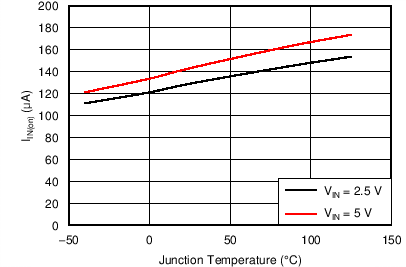
| RILIM = 33 KΩ | ||
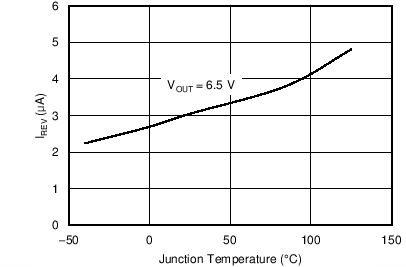
| VEN = VIN = 0 V | ||
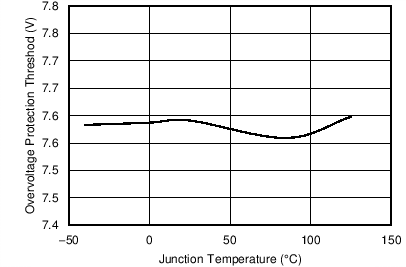
| VEN = VIN = 0 V | ||
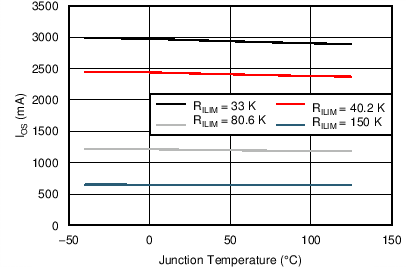 Figure 6-7 IOS vs Junction Temperature
Figure 6-7 IOS vs Junction Temperature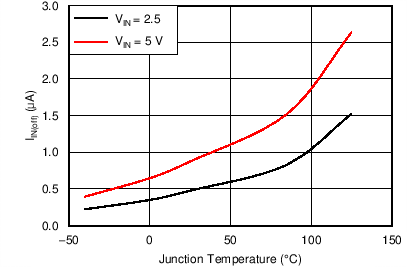
| RILIM = 33 KΩ | ||
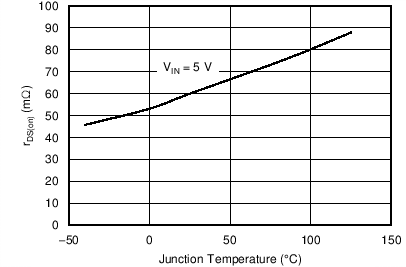 Figure 6-4 rDS(ON) vs Junction Temperature
Figure 6-4 rDS(ON) vs Junction Temperature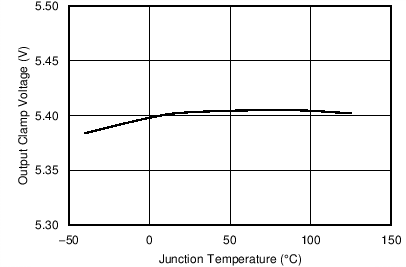
| CL = 1 µF | RL = 100 Ω | VIN = 6.5 V |
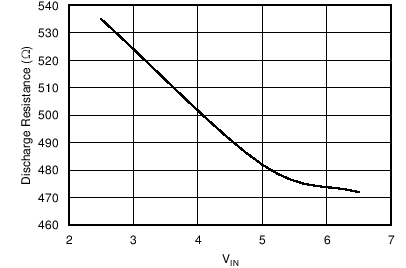 Figure 6-8 Discharge Resistance vs VIN
Figure 6-8 Discharge Resistance vs VIN